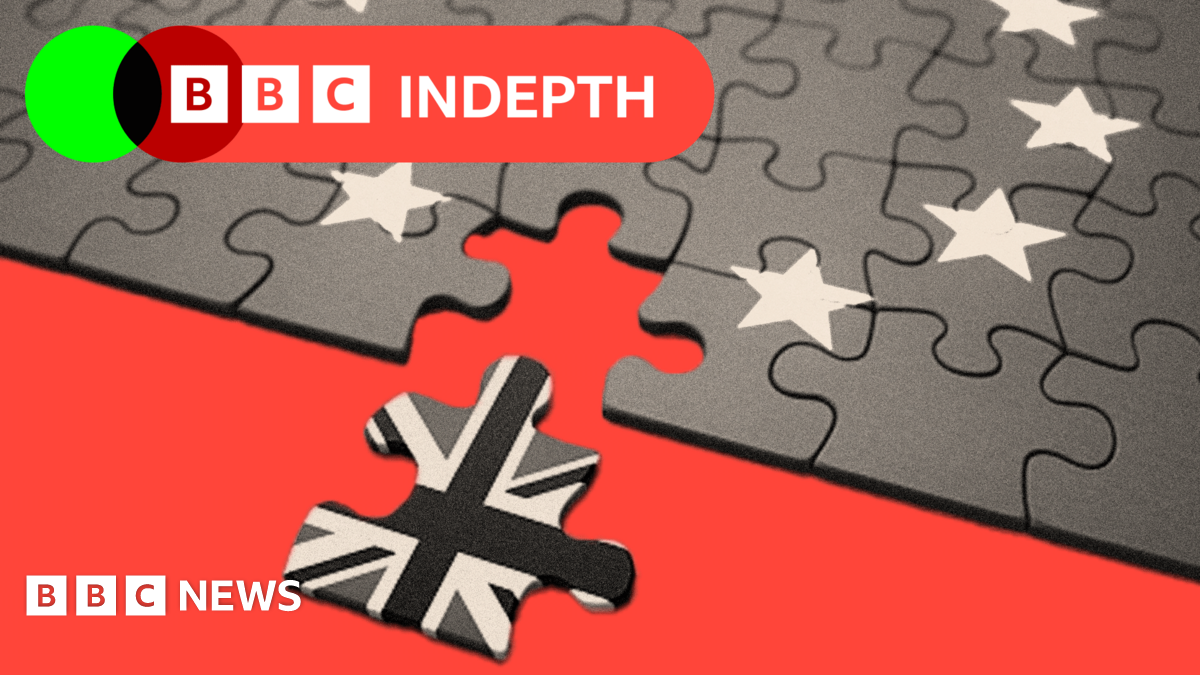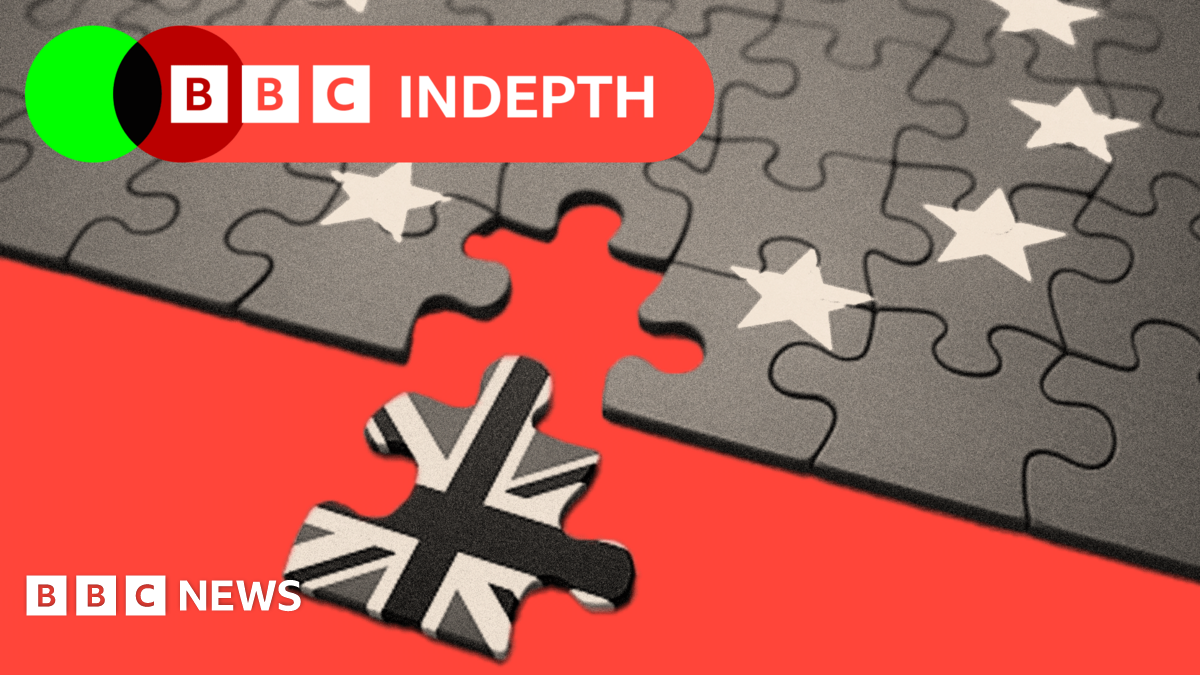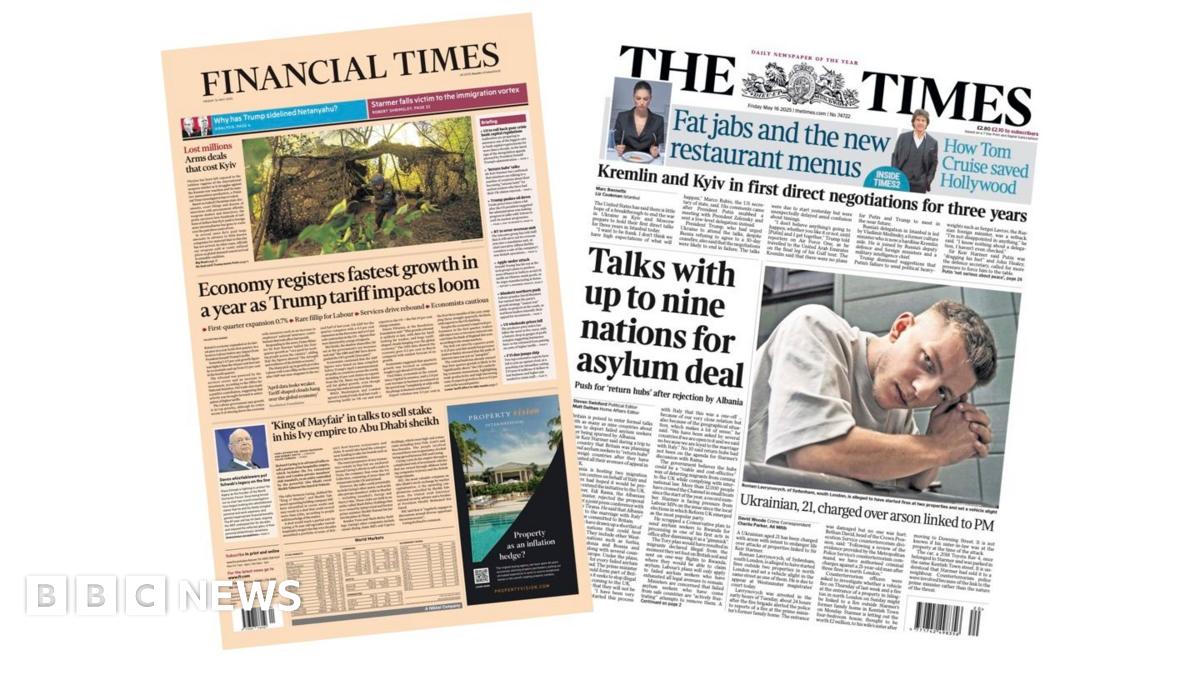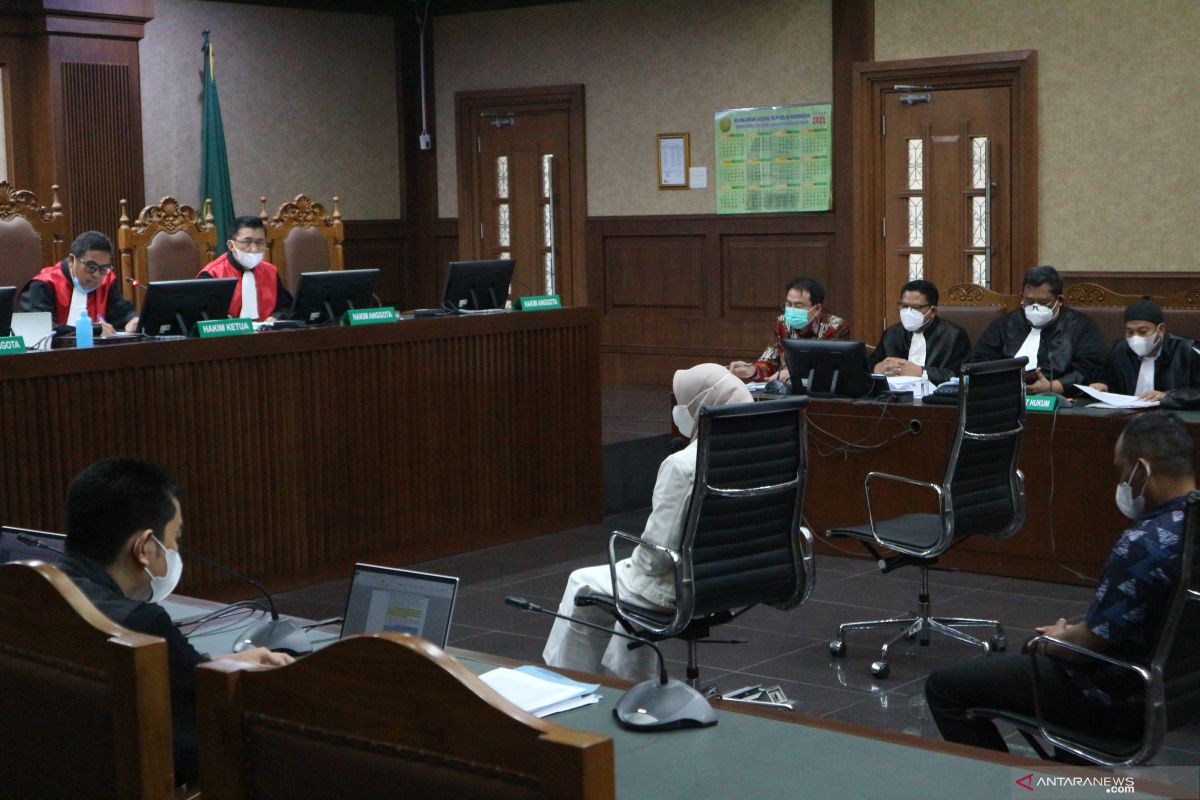Brexit Backtrack? Britain's Shifting Relationship With The EU

Welcome to your ultimate source for breaking news, trending updates, and in-depth stories from around the world. Whether it's politics, technology, entertainment, sports, or lifestyle, we bring you real-time updates that keep you informed and ahead of the curve.
Our team works tirelessly to ensure you never miss a moment. From the latest developments in global events to the most talked-about topics on social media, our news platform is designed to deliver accurate and timely information, all in one place.
Stay in the know and join thousands of readers who trust us for reliable, up-to-date content. Explore our expertly curated articles and dive deeper into the stories that matter to you. Visit Best Website now and be part of the conversation. Don't miss out on the headlines that shape our world!
Table of Contents
Brexit Backtrack? Britain's Shifting Relationship with the EU
The post-Brexit landscape is proving far more complex than initially envisioned, with Britain's relationship with the European Union undergoing a subtle yet significant shift. Initial pronouncements of a decisive break are giving way to a more nuanced reality, marked by pragmatic adjustments and a growing recognition of intertwined interests. This article explores the evolving dynamics between the UK and the EU, examining the key areas of change and speculating on the future trajectory of their relationship.
From Hard Brexit to Pragmatic Pragmatism?
The initial years following Brexit were dominated by a focus on sovereignty and a perceived need to distance the UK from EU regulations. This "hard Brexit" approach, however, quickly revealed unforeseen economic and logistical challenges. The Northern Ireland Protocol, in particular, became a major point of contention, highlighting the complexities of disentangling deeply integrated economies. The recent shift towards a more pragmatic approach suggests a recognition of the limitations of complete separation. This isn't necessarily a "backtrack" on Brexit itself, but rather a recalibration of expectations and a pragmatic adaptation to the realities of the post-Brexit world.
Key Areas of Shifting Dynamics:
-
Trade: While the initial trade deal aimed for a degree of independence, the reality of reduced access to the EU single market has impacted British businesses. Discussions around easing trade friction, particularly regarding agricultural products and services, are becoming increasingly prevalent. This suggests a move away from the initial hardline stance on trade negotiations.
-
Northern Ireland Protocol: This remains a major sticking point. The ongoing disagreements highlight the challenges of balancing political sensitivities with economic realities. Recent attempts at finding a mutually agreeable solution suggest a willingness to compromise on both sides, signaling a softening of previously entrenched positions. [Link to relevant article on the Northern Ireland Protocol]
-
Security Cooperation: Despite Brexit, the UK and the EU remain vital partners in addressing shared security challenges. Cooperation on counter-terrorism, cyber security, and organized crime continues, underscoring the enduring importance of collaboration despite political divisions. This ongoing cooperation suggests that security concerns can override some of the political fallout from Brexit.
-
Immigration: The free movement of people, a cornerstone of EU membership, ended with Brexit. This has led to labor shortages in certain sectors within the UK, highlighting the interconnectedness of labor markets and the potential economic consequences of restrictive immigration policies. While unlikely to return to free movement, there's a growing discussion about potential adjustments to address these labor market imbalances.
Looking Ahead: A New Chapter?
The evolving relationship between the UK and the EU points towards a more complex and less ideologically driven dynamic. The initial emphasis on complete separation is giving way to a more nuanced approach that acknowledges the enduring interdependence between the two entities. This doesn't signify a return to EU membership, but rather a pragmatic recalibration of the post-Brexit relationship.
The future will depend on the willingness of both sides to engage in constructive dialogue and find solutions that address the practical challenges of their new relationship. While complete reconciliation might be unlikely in the short term, the ongoing adjustments suggest a more pragmatic and potentially more stable long-term relationship is emerging. The coming years will be crucial in determining the precise nature of this evolving partnership.
Call to Action: What are your thoughts on the shifting UK-EU relationship? Share your perspectives in the comments section below.

Thank you for visiting our website, your trusted source for the latest updates and in-depth coverage on Brexit Backtrack? Britain's Shifting Relationship With The EU. We're committed to keeping you informed with timely and accurate information to meet your curiosity and needs.
If you have any questions, suggestions, or feedback, we'd love to hear from you. Your insights are valuable to us and help us improve to serve you better. Feel free to reach out through our contact page.
Don't forget to bookmark our website and check back regularly for the latest headlines and trending topics. See you next time, and thank you for being part of our growing community!
Featured Posts
-
 Jalan Panjang Sandy Walsh Dari Cadangan Ke Starting Xi Yokohama F Marinos
May 17, 2025
Jalan Panjang Sandy Walsh Dari Cadangan Ke Starting Xi Yokohama F Marinos
May 17, 2025 -
 Police Charge Man Over Arson Incidents Linked To Pm Starmer
May 17, 2025
Police Charge Man Over Arson Incidents Linked To Pm Starmer
May 17, 2025 -
 Generational Chat Gpt Use Sam Altman On College Students Reliance For Major Decisions
May 17, 2025
Generational Chat Gpt Use Sam Altman On College Students Reliance For Major Decisions
May 17, 2025 -
 2025 Nba Playoffs Julian Strawthers Reaction To Game 5 Defeat Against Okc
May 17, 2025
2025 Nba Playoffs Julian Strawthers Reaction To Game 5 Defeat Against Okc
May 17, 2025 -
 Cak Imin Utusan Prabowo Saksikan Pelantikan Paus Secara Langsung
May 17, 2025
Cak Imin Utusan Prabowo Saksikan Pelantikan Paus Secara Langsung
May 17, 2025
Latest Posts
-
 Moto Gp 2024 Daftar 13 Pembalap Yang Kehilangan Kursi Di Tengah Jalan
May 17, 2025
Moto Gp 2024 Daftar 13 Pembalap Yang Kehilangan Kursi Di Tengah Jalan
May 17, 2025 -
 Britains Post Brexit Trajectory Back To The Eu
May 17, 2025
Britains Post Brexit Trajectory Back To The Eu
May 17, 2025 -
 Farm Inheritance Tax Delay Mps Demand One Year Reprieve
May 17, 2025
Farm Inheritance Tax Delay Mps Demand One Year Reprieve
May 17, 2025 -
 Inheritance Tax On Farms Mps Push For 12 Month Proposal Delay
May 17, 2025
Inheritance Tax On Farms Mps Push For 12 Month Proposal Delay
May 17, 2025 -
 Albania Snub And Economic Uptick A Challenging Week For Keir Starmer
May 17, 2025
Albania Snub And Economic Uptick A Challenging Week For Keir Starmer
May 17, 2025 -
 Updated Assisted Dying Legislation Debate Looms In Uk Parliament
May 17, 2025
Updated Assisted Dying Legislation Debate Looms In Uk Parliament
May 17, 2025 -
 Kunjungan Artis Film Cocote And Tonggo Ke Sentra Tenun Tradisional Kediri
May 17, 2025
Kunjungan Artis Film Cocote And Tonggo Ke Sentra Tenun Tradisional Kediri
May 17, 2025 -
 Comeback Sandy Walsh Boosting Timnas Indonesia Di Bawah Kluivert
May 17, 2025
Comeback Sandy Walsh Boosting Timnas Indonesia Di Bawah Kluivert
May 17, 2025 -
 Perkembangan Hukum Di Indonesia Menilik Kasus Rita Widyasari Dan Penanganan Konten Inses
May 17, 2025
Perkembangan Hukum Di Indonesia Menilik Kasus Rita Widyasari Dan Penanganan Konten Inses
May 17, 2025 -
 Tni Al Amankan 1 9 Ton Narkotika Bongkar Jaringan Internasional Di Kepri
May 17, 2025
Tni Al Amankan 1 9 Ton Narkotika Bongkar Jaringan Internasional Di Kepri
May 17, 2025
